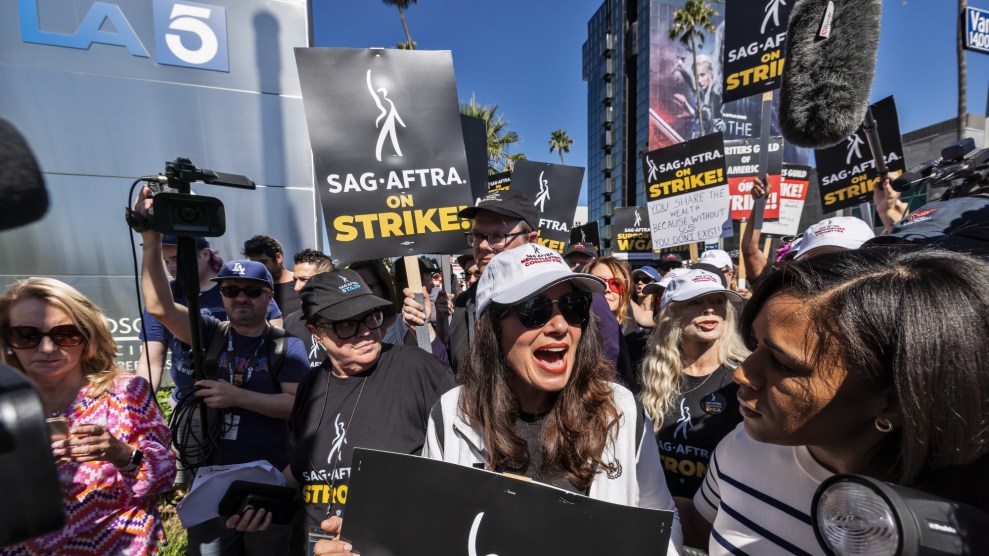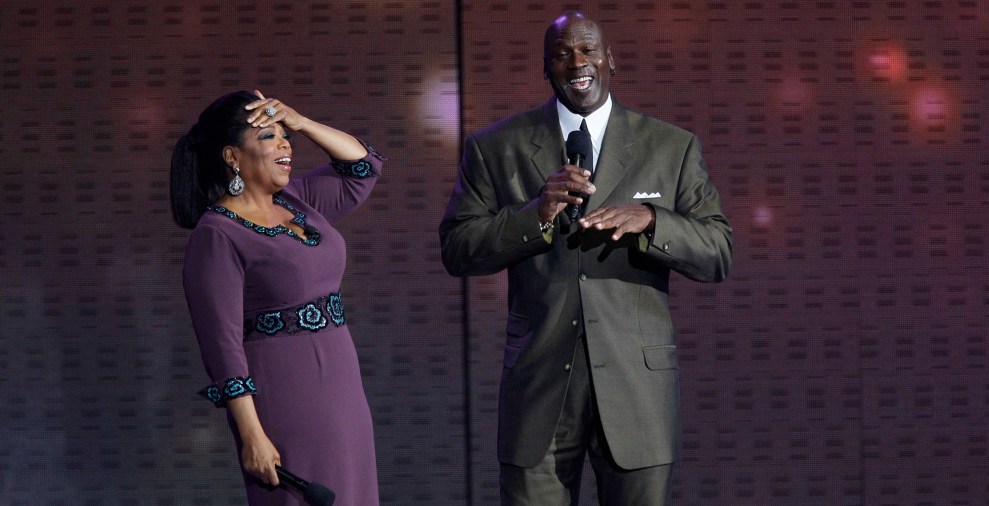
Ted Soqui/ AP
For the first time in 63 years, writers and actors are on strike, grinding Hollywood to a halt with a historic double strike.
You’ve probably recognized some of the celebrities at the picket line. Jason Sudeikis, Hillary Duff, Kevin Bacon, Bill Nye. These actors, similar to writers on strike, are demanding increased pay and protections from artificial intelligence. But the vast majority of striking members are far from household names, actors who are all but certain to survive the major economic consequences of both strikes as they drag on for weeks or even months. Instead, they’re working-class individuals forced to live “paycheck to paycheck,” according to SAG LA’s Vice President Michelle Hurd—and they want the world to know a few facts.
“These are blue-collar workers fighting for the basic necessities in life,” SAG member of seven years, Billy Peck, told me. Peck, who has worked on shows such as Law and Order: Organized Crime and Gotham, said that it took several years to create a sustainable career in television, and he considers himself one of the fortunate ones.
“Even those of us who have been lucky enough to make a little bit of a better living are forced to work paycheck to paycheck and cut back financially,” said Peck. “It just further reinforces that not all of us are A-listers.”
Union members, including Peck, depend on steady work in order to qualify for the union’s healthcare coverage. But most of SAG fails to qualify. That’s because, according to SAG-AFTRA negotiating committee member Michael Gaston, 87 percent of the union’s current members don’t make the required $26,470 a year to receive benefits.
One of the major points of contention in the fight for better pay is residuals, with actors and writers demanding to be fairly compensated as more content moves to streaming services. And some are coming forward with their own paychecks to make the point. That includes Kimiko Glenn, who appeared on Orange is the New Black for three seasons, who revealed on Tik Tok that her most recent residual check came out to a mere $27.30. Lea DeLaria, who played “Big Boo” on the show, revealed that she earns $20.27 a month, barely enough to pay for a premium Netflix subscription.
“I’m still living in my Bushwick apartment, where’s the money?” DeLaria told CNN. “I get stopped for pictures every day,” she added. “I know it seems like a first-world problem. But that’s how famous we are and we’re only making $20.27.”
“It’s very shocking to me that you could be on a network TV show that has a limited audience and make one amount of money,” Peck said. “[But] then, on a hit show that may have billions upon billions of viewers worldwide, and make a significantly lower amount. That just doesn’t make sense to me.”
The role of artificial intelligence, specifically the technology’s potential threat as a substitute for an actor’s image, has been another key issue in ongoing negotiations. I spoke with Melodie Wolford, who’s been working as an equity actress since 1985, about actors’ fears of AI. Wolford said that many studio execs assume that acting, especially when it comes to background actors, are mere hobbyists, people whose work could be easily duplicated.
“I guess anybody could do background but not like I do it,” Wolford pushed back. “Not like many of my friends who are professional background actors. They’re fantastic.” She added: “We’re not Meryl Streep or Tom Hanks. We’re not making that much money. We’re fighting for a fair contract that reflects what’s happening in 2023, not 1980.”
And the threat extends far beyond background actors. As Peck told me, many behind-the-scenes roles could also be jeopardized.
“There are hundreds of people that are tasked with assisting the background alone,” said Peck. “So if you no longer have any background on set, because we’re replacing them digitally, you get rid of all the costumers that are tasked with dressing the background, the hair and makeup artists that are tasked with getting the background ready to be on camera, additional directors.”
















